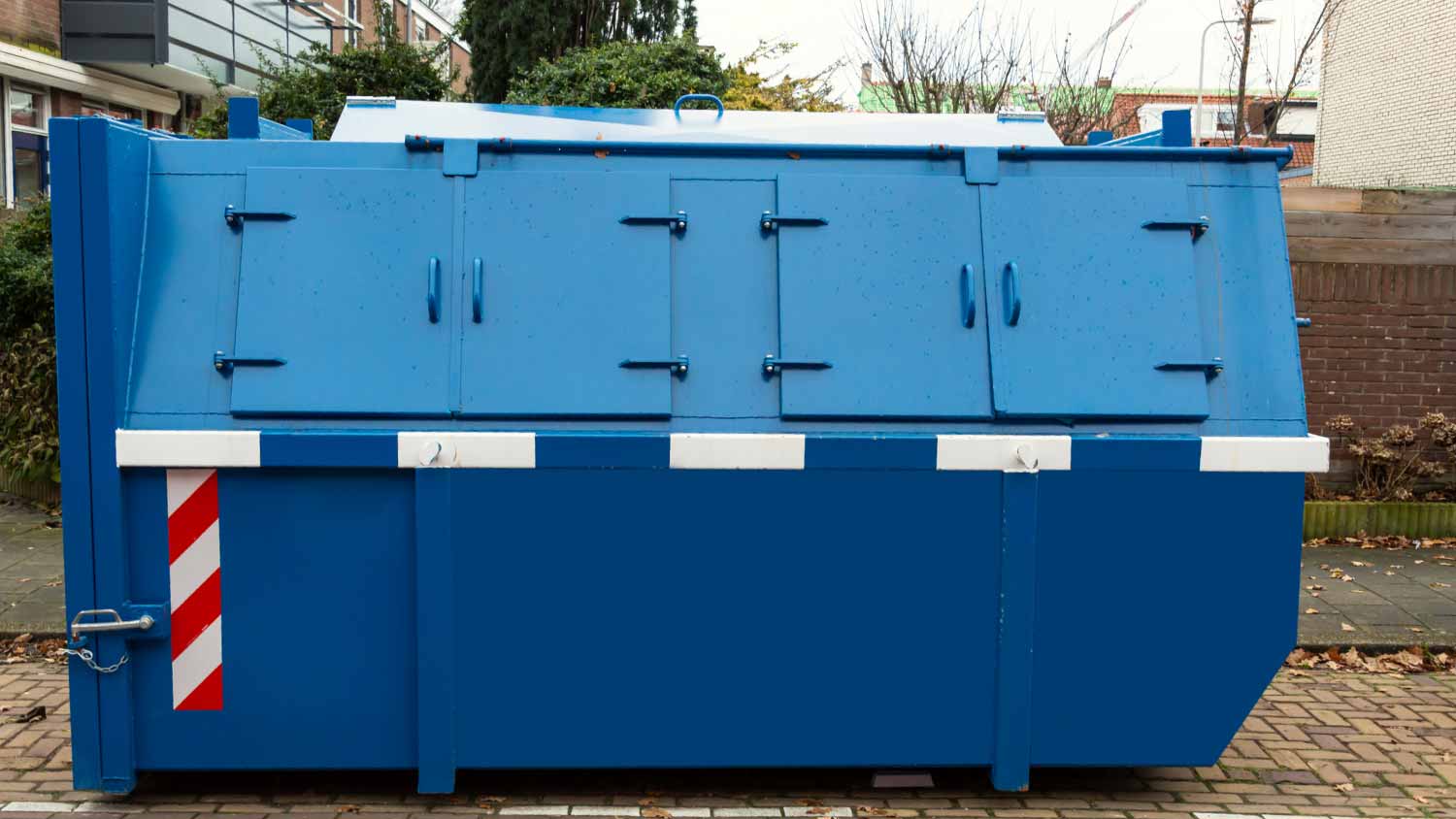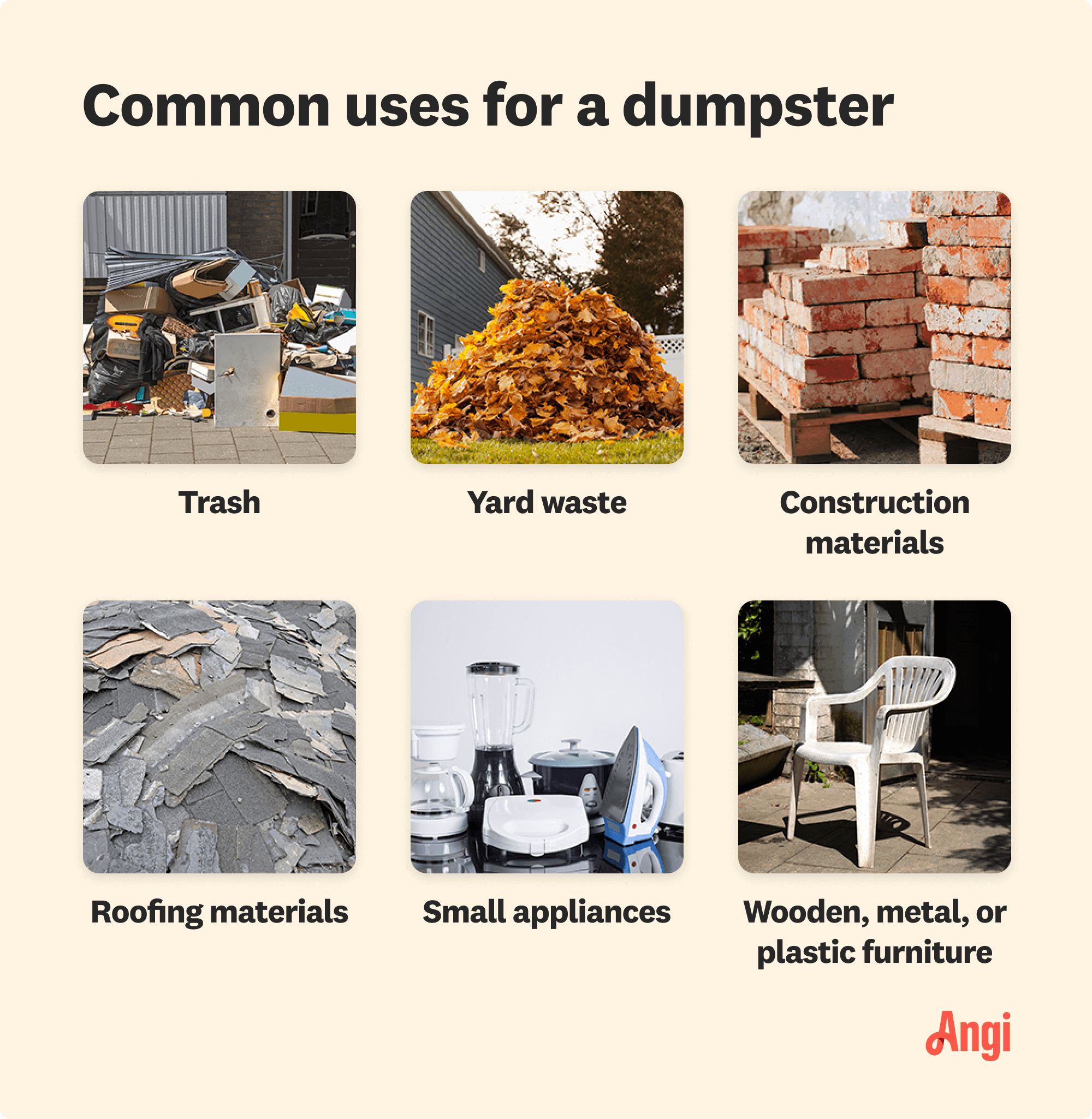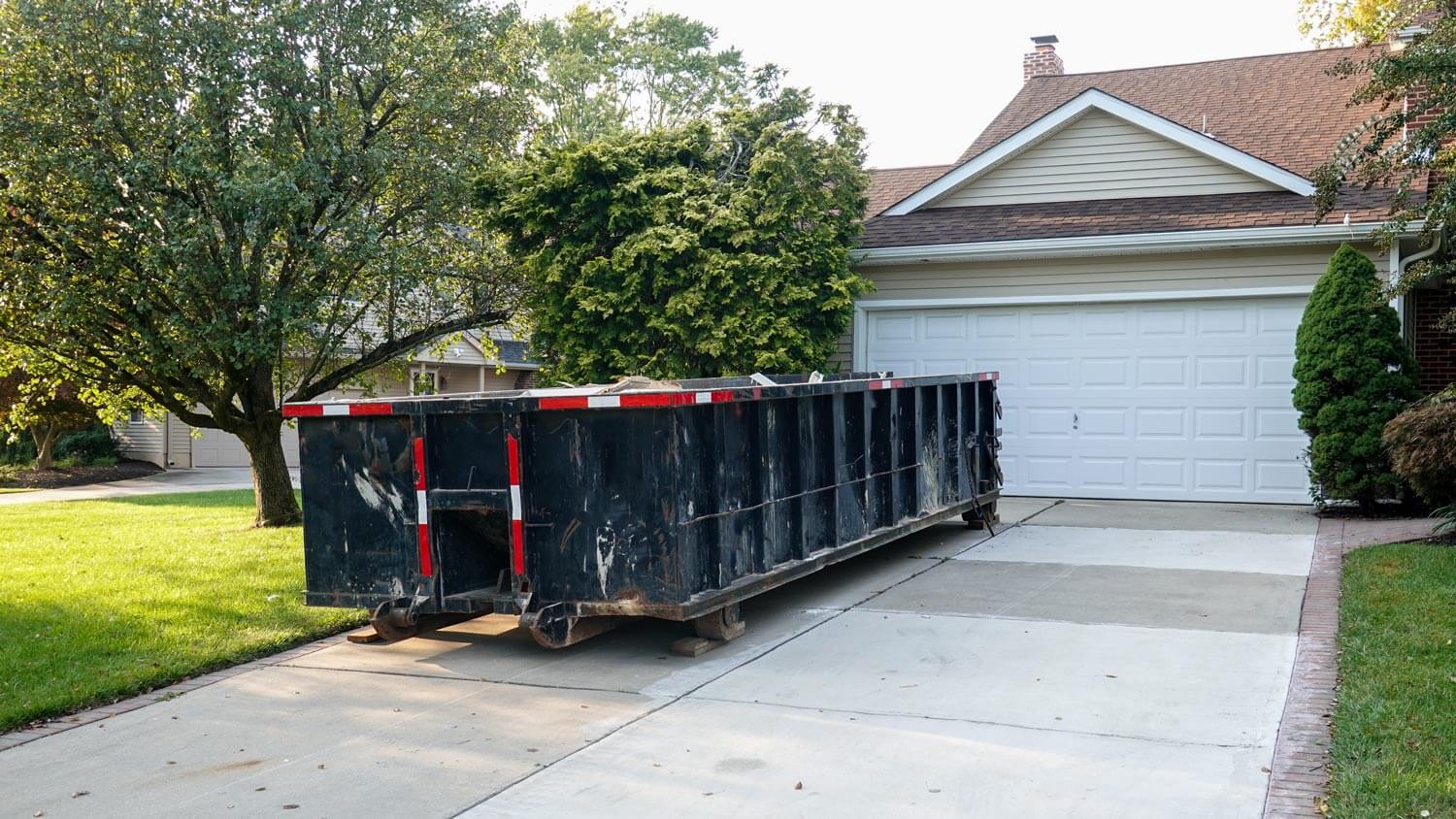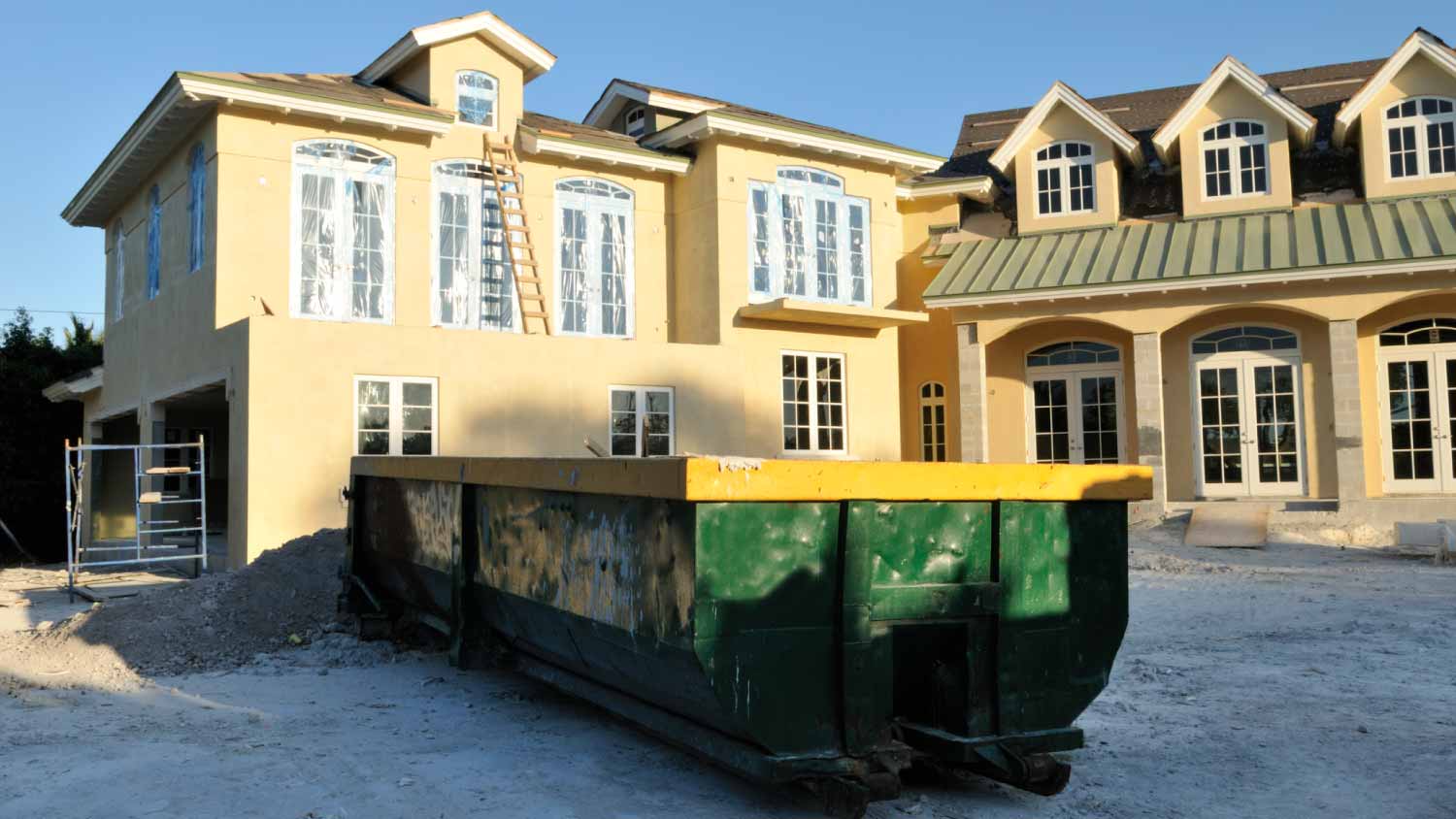
Wondering how much does it cost to rent a dump trailer? Get pricing, cost factors, and tips to help you budget for your next home project.
Avoid dumpster permit pitfalls


In most cases, you only need a permit if the dumpster will be on or block a public space, like a street or sidewalk.
Homeowner’s associations and some municipalities may require permits even for dumpsters on private property.
You can ask your local building department or your dumpster rental company if you need a permit to be certain.
If you’re planning a demolition project or just need to get rid of a large amount of junk in or around your home, a dumpster can make the work significantly easier. But you might find yourself asking: do you need a permit for a dumpster? In most cases, you’ll need a dumpster permit if it will sit in or block public spaces, but there are some special cases to consider, too. In this guide, we’ll explain when you need a dumpster permit, how to apply for one, and more.
Generally speaking, you’ll need a permit for a dumpster if it will sit on or block any public areas, which includes streets and sidewalks.
You’ll need a permit for a dumpster in the street. Maybe you don’t want to risk damaging your driveway with a heavy dumpster. In that case, you’ll need to place it in the street. That will require a permit since it will either block motorists or their view while driving.
You’ll need a dumpster permit if it blocks the sidewalk. Even if you put your dumpster in your driveway, you’ll still need a permit if it overhangs the sidewalk. This is most common with very long dumpsters and won’t always be an issue, depending on the size of the dumpster you need.
You might need a dumpster permit if you live in an HOA. Some homeowner’s associations will mandate dumpster permits even for dumpsters placed on your driveway that don’t block any public roadways or sidewalks.
Your town or village might require permits for dumpsters on private property. Much like with HOAs, some municipalities will mandate dumpster permits even if your dumpster sits entirely on your private property. This is uncommon, but it’s worth checking to make sure you’re not violating any local laws.
While there are federal guidelines for hazardous waste, each state and town also has its own unique guidelines. Make sure to check with your local government to understand its waste disposal regulations before starting your next removal project.
Most of the time, dumpsters require permits because they sit on or block public spaces. A dumpster in the street will interfere with motorists driving by and can obstruct their view, potentially making the roadway more dangerous. A permit essentially notifies the city of the obstruction of the public space and legalizes it temporarily.
In some cases, a permit approval will prompt a local government official to drive by to ensure the obstruction is within legal limits and doesn’t make the roadway unnecessarily dangerous for motorists.
Less often, dumpster permits are a means of controlling how long an unsightly dumpster will detract from the surrounding area. This is often the case when HOAs and small municipalities require permits for dumpsters on private property. They have an interest in maintaining the aesthetic of the neighborhood, and a permit that expires helps maintain that.
In some cases, permits can also help local municipalities ensure that the company that hauls junk away from your property is disposing of the debris in a responsible manner. It’s especially important in this case to avoid the dumping of hazardous materials that shouldn’t go in your dumpster.

Obtaining a dumpster permit often involves filing some paperwork with your local building department. Many municipalities have self-serve permit applications available online, so that’s a good first place to check. The permit you need will likely fall under one of the following names:
Dumpster permit
Street-closing permit
Street-use or temporary use permit
Encroachment permit
You’ll simply fill out the permit request form, pay the permit fee, and wait for approval. Once your permit is approved, provide the permit paperwork to your dumpster company so they can proceed.
In many cases, you can also rely on your local dumpster rental company to pull the necessary permits for you.
Dumpster permits allow your dumpster placement for between one week and one month, but the timeline depends on where you live. You can ask for extensions to that timeline, but you might need to fill out an additional permit request and pay the permit fee again.
Even if you don’t need permits, your local building department may have a timeline for dumpsters being on your private property and visible from the street. Check with your building department or dumpster company to see the timeline or get an extension if needed.
Finally, dumpster permits take some time to process and for the building department to approve them. It’s a good idea to file for the permit at least a week in advance.
A dumpster permit usually costs between $10 and $100 per week, depending on your municipality. Your local building department or your dumpster rental company should be able to give you an exact dumpster permit price based on how long you need the dumpster at your property.

Dumpster rentals are enticing because they give you time to load debris at your own pace, making them ideal for ongoing projects like renovations or deep cleanouts. Afterward, the dumpster service hauls your junk away.
However, dumpsters require a suitable space for placement, which can be a challenge in residential neighborhoods. Your driveway or yard can work, but some HOAs or city ordinances restrict dumpsters altogether.
That’s where junk removal shines. A crew comes to your home, does the heavy lifting, and hauls everything away without having a dumpster sitting in your yard or driveway for weeks. It is a more convenient option for residential areas with space limitations or disposal restrictions.
From average costs to expert advice, get all the answers you need to get your job done.

Wondering how much does it cost to rent a dump trailer? Get pricing, cost factors, and tips to help you budget for your next home project.

Renting a dumpster is more practical than you think. Use this guide to learn how much your rental will cost, the different dumpster types available, and tips to help you save.

Learn how to rent a dumpster for your next home project or cleaning spree.

Dumpsters are a convenient way to get rid of large amounts of trash or debris. Learn what size dumpster is right for your project.

Need a dumpster for your project but not sure which type is right for you? Learn about the different types of dumpsters and their uses in this guide.

Roll-off dumpster costs depend on size, rental duration, and location. Weight and the type of debris can impact cost, and you may need to pay for a permit.